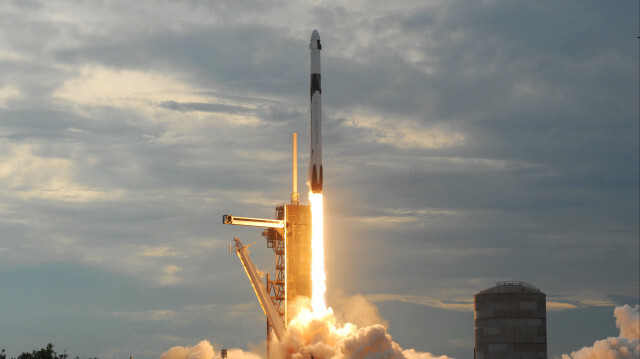
The global spending on nuclear weapons increased to $82.9B on 12,500 nuclear weapons in 2022 as nine nuclear-armed states continued to modernize and expand their arsenals, according to a report released on Monday.
The findings of the report -- Wasted: 2022 Global Nuclear Weapons Spending -- by the International Campaign to Abolish Nuclear Weapons (ICAN) were shared in Geneva by Alicia Sanders-Zakre, the co-author of the report and ICAN's policy and research coordinator, along with Susi Snyder, the program coordinator.
The figure is 3% more than the amount in 2021, which means $157,664 spent per minute on nuclear arms in 2022, the report found.
The US continues to be the top spender on nuclear weapons with $43.7 billion -- slightly less than in 2021.
Washington was followed by China, which spent a quarter of the US total at $11.7 billion, a rise of over 6%. Russia was the third-largest spender at $9.6 billion, which represents an increase of 5.74% from the previous year.
Meanwhile, India saw the greatest increase in spending, with a 21.8% rise. The UK was the other country with a double-digit increase -- slightly more than 11%.
"Of course, all of this money that was spent on weapons of mass destruction could have been much better allocated to addressing many of the global challenges that we face," Sanders-Zakre said in her opening remarks.
"As one example for $82.9 billion, you could provide clean water sanitation for about 1.3 billion people worldwide," she added.
The report also underlined that such an amount of money could have paid for 2 billion people to be vaccinated against COVID-19 or provided 1.27 billion people with clean water and sanitation for a year.
- Nuclear weapon producers receive contracts worth nearly $16B
Nuclear weapons manufacturers received new contracts totaling just under $16 billion in 2022, the report said, and in turn, spent $113 million on lobbying governments in the US and France alone.
Nuclear-armed countries have contracts with corporations worth at least $278.6 billion that will last until 2040 in some situations, it added.
"The arms industry is raking in about 35% of this money while telling shareholders that lobbying against nuclear disarmament is good for business," Snyder said. "But thankfully more and more investors are coming to see nuclear weapons as a significant risk and are divesting from these companies.”
Sanders-Zakre said the amount that nuclear-armed states "wasted" in 2022 did "nothing to improve global security," arguing that they are making the situation "worse."
"Real security is being provided through the Treaty on the Prohibition of Nuclear Weapons, where almost half of UN member states are rejecting these tools of terror and intimidation and collaborating to end the nuclear weapons era forever," she added.
- Russia's nuclear weapon spending 'not impacted largely by war'
Asked whether Russia's war on Ukraine can be linked to the increase in nuclear spending in 2022, Sanders-Zakre said: "Interestingly, when we look at Russian nuclear weapons spending, ... (it) was not impacted largely by the war."
Their overall military expenditures increased significantly beyond what was budgeted before the start of the war in Feb. 24, 2022, she said, but their specific spending dedicated to their nuclear weapons complex remained largely unchanged from what was budgeted versus what was enacted.
However, Sanders-Zakre said, she thinks at the same time that there were kind of broader impacts on kind of the emphasis put on nuclear weapons and how they were regarded more broadly.
Snyder, for her part, said a number of companies saw a great business opportunity after the war began as their annual revenue show.
Although they voiced the possibilities to increase their revenue, they did not quite manage as much as they may have wanted, because of other issues around the supply chain and particularly their suppliers, she added.
Regarding Russia's decision of moving nuclear weapons to Belarus, Snyder said the weapons have not been moved yet, and ICAN will continue to encourage people to oppose it as moving weapons around is an escalation that increases the risks.
"No country should host another country's nuclear weapons. No country should deploy their weapons outside of their own territory," she said, noting that such a move is explicitly prohibited under the Treaty on the Prohibition of Nuclear Weapons.
Russian President Vladimir Putin said Friday that the deployment of tactical nuclear weapons in Belarus will start in July.
Speaking at a meeting with Belarusian President Alexander Lukashenko in Sochi, Russia, Putin said the construction of special facilities necessary for the deployment is scheduled to be completed by July 7-8.

